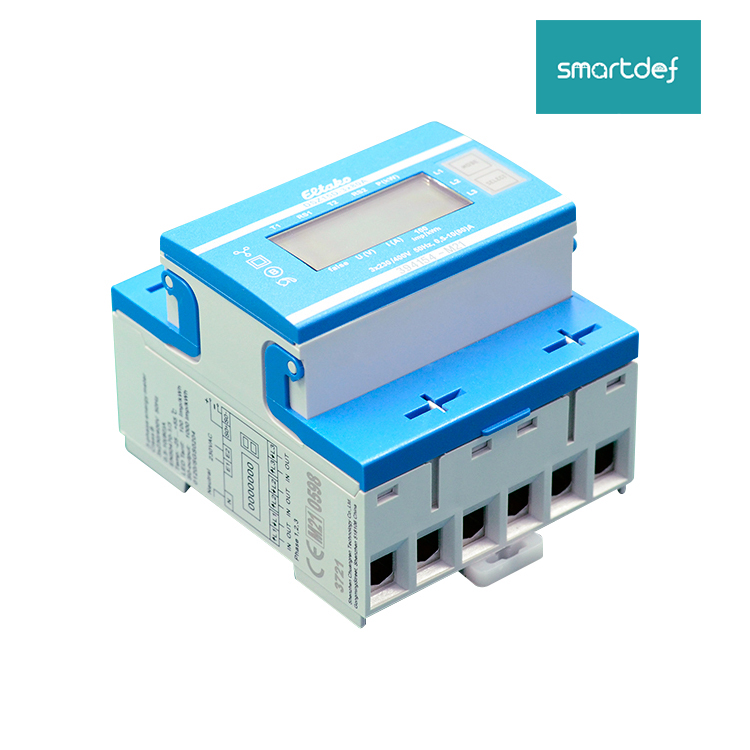Smart Electric Meter
-

Smartdef keypad prepaid metersingle phase prepayment meter digital electric meter hack smart meter
The Advantages and Vulnerabilities of Smart Meters: A Closer Look at Prepaid Electric Meters and Hacking Risks
Smart meters have emerged as a technological solution to monitor and manage energy consumption. These advanced devices, also known as electric meters, revolutionize the way electricity is measured and billed. Among the various types of smart meters available in the market, the prepaid meter stands out as a popular choice due to its unique features such as the Smartdef keypad and the ability to use digital prepaid tokens.
A prepaid meter, also referred to as a single-phase prepayment meter or a digital electric meter, works on a simple principle – consumers pay for electricity before using it. This system provides users with greater control over their energy consumption and spending. By using the Smartdef keypad, consumers can easily top-up their electricity balance by purchasing prepaid tokens and inputting them into the meter. This convenient process eliminates the need for manual meter reading, estimation of bills, and unexpected inflated bills.
The benefits of prepaid meters extend beyond financial control. These smart meters promote energy conservation by raising awareness of consumption patterns. Users can actively monitor and manage their electricity usage, allowing them to make informed decisions in real-time. Additionally, prepaid meters provide a detailed breakdown of energy consumption, enabling users to identify high-energy-consuming appliances or devices. By understanding their energy usage, consumers are motivated to adopt energy-efficient practices, leading to reduced energy consumption and lower carbon footprints.
However, as with any technological innovation, smart meters introduce vulnerabilities and potential risks. The term “hack smart meter” suggests that these devices are not immune to unauthorized access or tampering. Hackers may attempt to gain access to the smart meter’s system, manipulating energy measurements or disrupting its function. This poses a concern in terms of consumer privacy and security.
To address these concerns, smart meter manufacturers employ stringent security measures. These include encryption protocols, authentication mechanisms, and regular firmware updates to protect the meters’ integrity. Furthermore, utility companies conduct regular audits and inspections to ensure the meters’ security and accuracy.
It is crucial for consumers to be aware of potential vulnerabilities and take preventive measures to protect their smart meters. Simple steps, such as regularly changing default passwords, keeping firmware up to date, and monitoring electricity consumption, can significantly reduce the risks of unauthorized access or manipulation.
In conclusion, smart meters, including prepaid meters with features like the Smartdef keypad, offer many advantages to both consumers and utility companies. They empower consumers by providing better financial control and fostering energy conservation. However, the potential vulnerabilities associated with smart meters, such as hacking risks, highlight the need for robust security measures and consumer vigilance. By staying informed and taking preventative actions, consumers can enjoy the benefits of smart meters while mitigating potential risks.
-

ADL400/C smart electricity meter for electric energy management with RS485 and harmonic monitor
Detail The ADL400/C smart electricity meter is the perfect solution for electric energy management in any setting, whether you are looking to manage your energy usage at home or for commercial purposes. This innovative meter comes equipped with advanced features, such as RS485 communication, harmonic monitoring, and a user-friendly interface, all designed to help you effectively manage your energy consumption and reduce costs. Designed with the latest technology, the ADL400/C smart elect... -

TUYA APP WiFi smart electric meters Leakage Over Under Voltage Protector Relay Device Switch Breaker Energy Power kWh Meter
Detail Introducing the TUYA APP WiFi smart electric meters Leakage Over Under Voltage Protector Relay Device Switch Breaker Energy Power kWh Meter – the ultimate solution to your energy management needs. Designed with cutting-edge technology and superior functionality, this device is more than just a simple meter. It offers state-of-the-art protection and control options that ensure your home is always safe and secure from electrical hazards. With the TUYA APP WiFi smart electric me... -

lectricity Smart Meter and Electricity Meter PCB with Components
Detail Smart meter is composed of measurement unit, data processing unit, etc. It has the functions of energy metering, information storage and processing, real-time monitoring, etc. It is the smart terminal of smart grid. The functions of smart meter mainly include dual display function, prepaid function, accurate charging function and memory function. The specific functions are introduced as follows 1. Display function The water meter with general display function will also be ava...
